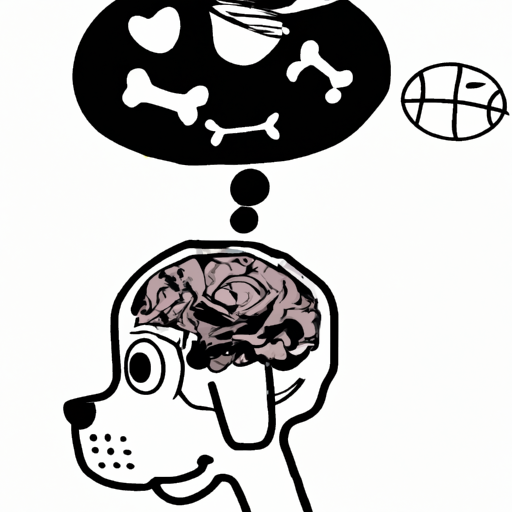Understanding Your Dog’s Mental Processes
As a caregiver, it is essential to understand how your furry friend perceives the world. Dogs process information differently than humans. While we rely heavily on our visual senses, dogs are more attuned to their senses of smell and hearing.
- Smell: Dogs have a sense of smell that is 10,000 to 100,000 times more acute than ours. This allows them to gather a wealth of information about their environment, which they then process and react to.
- Hearing: Dogs can hear frequencies we can’t, and sounds play a significant role in how they interpret their surroundings.
Remember, when communicating with your dog:
- Use a consistent tone and volume of voice.
- Use short, simple commands.
Canine Cognition
Dogs are more intelligent than most people give them credit for. They can learn new tasks, solve problems, and even understand human emotions. Dogs can remember things, recognize patterns, and even feel emotions.
| Cognitive Abilities | Description |
|---|---|
| Problem Solving | Dogs can figure out how to reach a treat or manipulate a toy to get a reward. |
| Memory | Dogs can remember commands, places, and people. |
| Emotion Recognition | Dogs can sense if their human companions are happy, sad, or stressed. |
The Emotional Life of Dogs
Yes, your dog has emotions. Research has shown that dogs experience a range of emotions, including joy, fear, anger, disgust, and love. They also show signs of more complex emotions such as jealousy and anticipation.
- Joy: Exhibited when you come home, during play, or when given a favorite treat.
- Fear: Shown by flattening the ears, tucking the tail, and avoiding eye contact.
- Love: Shown by proximity and affectionate behaviors.
Training and Your Dog’s Thought Process
Understanding how dogs think can greatly enhance your training efforts. Dogs learn through a process called operant conditioning, which involves learning from the consequences of their actions.
- Positive reinforcement: Rewarding the dog immediately after it performs the desired behavior.
- Negative punishment: Removing something the dog likes when it performs an undesirable behavior.
Remember, patience and consistency are key in dog training.
FAQ Section
Q: Do dogs have a sense of time?
A: Yes, they can perceive the passage of time, although not in the same way humans do.
Q: Can dogs feel complex emotions like guilt or shame?
A: Research is ongoing, but current evidence suggests that dogs may not experience these emotions as humans do.
Q: Can dogs understand human language?
A: They can understand certain words and the tone of voice we use.
Q: Do dogs dream?
A: Yes, dogs do dream. They show similar brain wave patterns to humans during sleep, which suggests they dream.
Q: Can dogs recognize themselves in a mirror?
A: No, dogs do not recognize themselves in mirrors. They rely more on scent than sight for identification.
Understanding how dogs think can help you build a deeper, more meaningful relationship with your canine companion. Remember, every dog is unique, and their thought processes can differ based on their breed, age, and individual personality.



